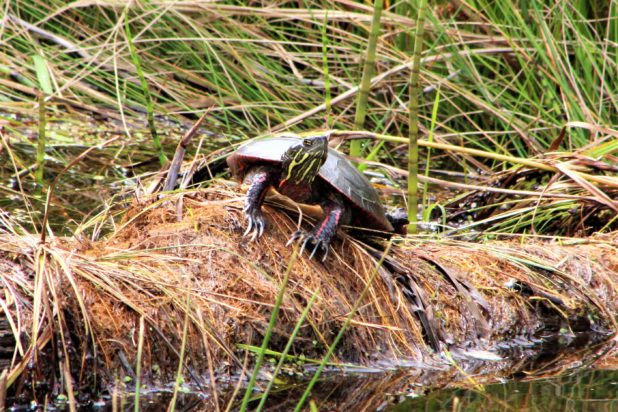Commentary
A golden chance
April 21, 2020

April 21, 2020
By Nate Smelle
By means of this evolving crisis we are seeing changes in our daily lives on both the personal and societal levels. Since participating in a video conference call with environmentalist and scientist Dr. David Suzuki and National Observer CEO and editor-in-chief Linda Solomon Wood last week, I have been pondering how these changes are shaping our consciousness as individuals and as individuals.
Basically, my biggest take away from the conversation that brought together some 350 people from both sides of the Canada-U.S. border, was that the fundamental shift in our day-to-day routines and way of life that is taking place courtesy of the pandemic is giving us the opportunity to curb our senseless appetite for self-destruction.
As devastating as the situation with the COVID-19 pandemic may be for the human species, Suzuki considers the climate crisis to be a much bigger catastrophe because it threatens the existence of all life on Earth. Although such a bleak analysis might provoke some to get lost in a sense of existential despair, I was inspired to learn that for Suzuki the global response to the pandemic has instead provided him with hope for the future.
During the conversation, Suzuki acknowledged how former vice-president of the United States Al Gore has repeatedly pointed out how the Chinese symbol for the word crisis consists of two parts – one symbolizing danger and the other opportunity. Advising us how to make the most of the opportunities created by COVID-19 to seriously start taking action on the climate crisis, he said “The important thing is that when you are dealing with an issue you make the commitment to try to solve it or beat it; then you pull out all the stops, and the old rules and constraints no longer apply. And that means there are huge opportunities to try new things.”
Suzuki also drew attention to the fact how most politicians are constrained by the “laws of re-election,” which for many of them is their top priority. Because of this, one of the obstacles preventing society from implementing an effective strategy to deal with the climate crisis is that everything that needs to be done, can’t be accomplished in a single election period. However, politics, although “driven by a corporate agenda” that relies on an economic system based on “the creed of cancer” … endless economic growth … gives us the power to reshape these human constructs for the sake of our survival.
As human animals, as with every species of plant and animal, some constraints – our dependence on clean air to breathe, clean water to drink and wash, clean soil to grow the food we need to survive, and the biodiversity which keeps all these vital gifts in balance – are mandatory.
“We live in a world that is shaped and constrained by laws of nature, and we can’t do anything about that,” Suzuki said.
“Every species of plant and animal has a maximum number that can be achieved. If we exceed that number their population will crash, and that’s determined by the carrying capacity of their ecosystem.”
Through the now unavoidable contemplation of the fragility of our own existence, we are being given the precious opportunity to change the way we live, the way we eat, the way we do business, and the way we interact with each other and the planet we call home.
It is now up to us to make the most of this “golden chance.”


















